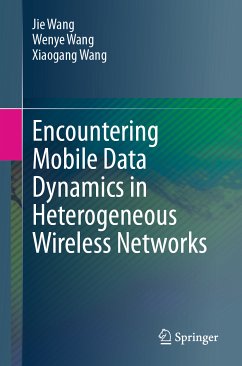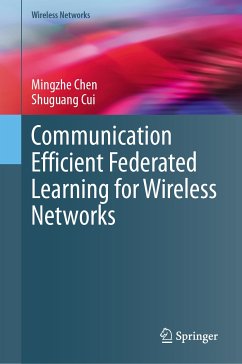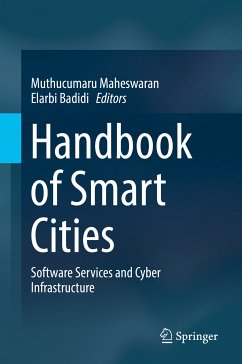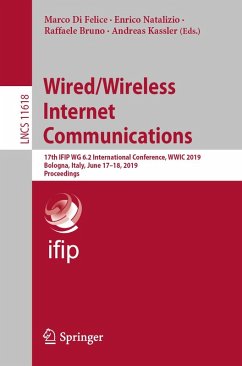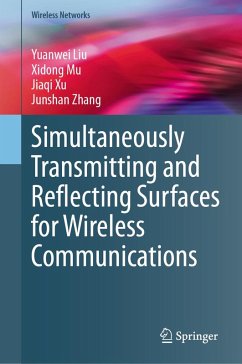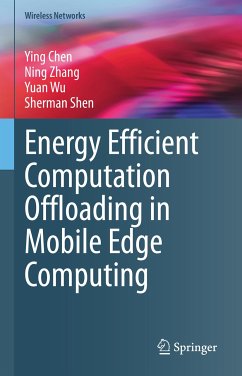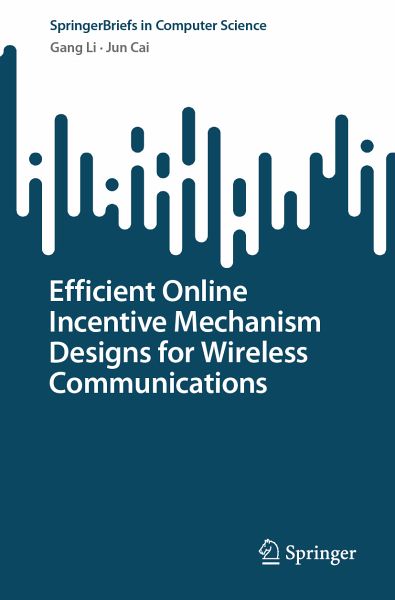
Efficient Online Incentive Mechanism Designs for Wireless Communications (eBook, PDF)
Versandkostenfrei!
Sofort per Download lieferbar
36,95 €
inkl. MwSt.
Weitere Ausgaben:

PAYBACK Punkte
18 °P sammeln!
This book initially delves into its fundamentals to initiate the exploration of online incentive mechanisms in wireless communications. Three case studies are provided to elaborate details on designing online mechanism design in practical system. For crowdsensing with random task arrivals, this book introduces a linear online incentive mechanism model with insurance of the quality of information for each incoming task. In the context of edge computing systems, the authors model a nonlinear online incentive mechanism with the consideration of mobile users' energy budget constraints. It also exp...
This book initially delves into its fundamentals to initiate the exploration of online incentive mechanisms in wireless communications. Three case studies are provided to elaborate details on designing online mechanism design in practical system. For crowdsensing with random task arrivals, this book introduces a linear online incentive mechanism model with insurance of the quality of information for each incoming task. In the context of edge computing systems, the authors model a nonlinear online incentive mechanism with the consideration of mobile users' energy budget constraints. It also explores online incentive mechanism for collaborative task offloading in mobile edge computing to achieve on-arrival instant responses. This book not only disseminates current knowledge but also sheds light on future research directions.
The design of incentive mechanisms in wireless communication systems is of paramount importance as it encourages dormant terminals within networks to contribute their valuable resources. The consideration of randomness of network processes enhances the mechanism design under online settings and decision making on the fly. This book endeavours to bridge existing knowledge gaps by comprehensively presenting and developing fundamental insights into online incentive mechanisms and their design methods in the realm of wireless communications. It's one of the first books to provide a comprehensive understanding of the fundamental principles of online incentive mechanisms and their intricately designed methods in the dynamic world of wireless communications. Future research directions include an investigation in the evolving domain of online incentive mechanism designs within wireless communications.
This book strikes a balance between theoretical knowledge and practical application, making it a valuable resource for both researchers and practitioners in the field of wireless communications and network economics. Advanced-level students majoring in computer science and/or electrical engineering will want to purchase this book as a study guide.
The design of incentive mechanisms in wireless communication systems is of paramount importance as it encourages dormant terminals within networks to contribute their valuable resources. The consideration of randomness of network processes enhances the mechanism design under online settings and decision making on the fly. This book endeavours to bridge existing knowledge gaps by comprehensively presenting and developing fundamental insights into online incentive mechanisms and their design methods in the realm of wireless communications. It's one of the first books to provide a comprehensive understanding of the fundamental principles of online incentive mechanisms and their intricately designed methods in the dynamic world of wireless communications. Future research directions include an investigation in the evolving domain of online incentive mechanism designs within wireless communications.
This book strikes a balance between theoretical knowledge and practical application, making it a valuable resource for both researchers and practitioners in the field of wireless communications and network economics. Advanced-level students majoring in computer science and/or electrical engineering will want to purchase this book as a study guide.
Dieser Download kann aus rechtlichen Gründen nur mit Rechnungsadresse in A, B, BG, CY, CZ, D, DK, EW, E, FIN, F, GR, HR, H, IRL, I, LT, L, LR, M, NL, PL, P, R, S, SLO, SK ausgeliefert werden.





